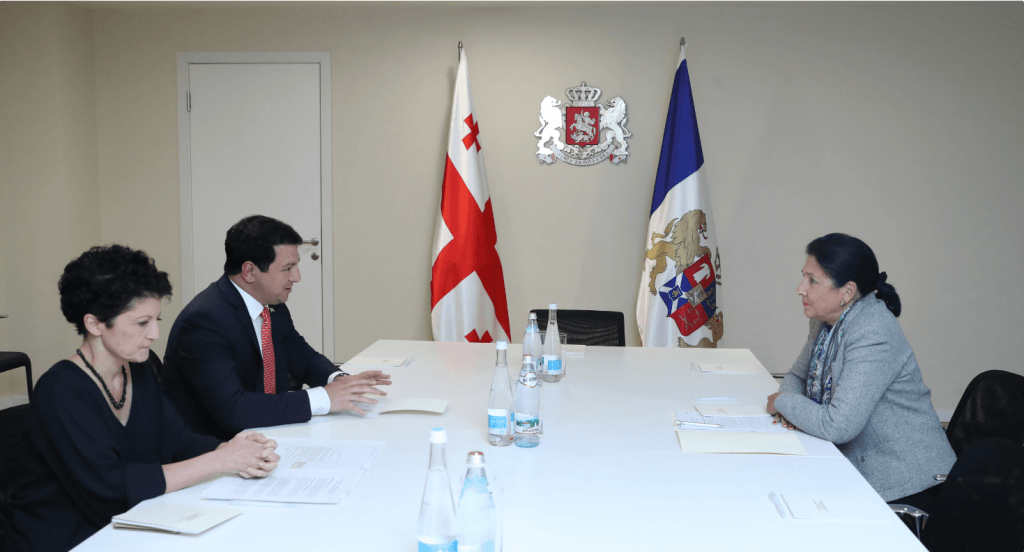Georgian President Salome Zurabishvili, Parliament Speaker Archil Talakvadze and Justice Minister Tea Tsulukiani met at the presidential palace on Atoneli Street on October 30 to discuss a new rule which would allow for the pardoning inmates.
President Zurabishvili said following the meeting that the Justice Minister and the Parliament Speaker voiced “interesting opinions”, which are “absolutely acceptable” to her. She said that suggestions would be taken into consideration when editing the text of the presidential order on the new rule of pardoning.
Controversial pardoning, that among others, resulted in releasing a man sentenced for murdering a police officer, was strongly criticized by the ruling Georgian Dream party, as well as the opposition. Responding to criticism, President Zurabishvili self-imposed “moratorium” on pardons in September, until clearer procedures are established.
Speaker Talakvadze hailed the meeting with the President as “positive,” saying both him and Minister Tsulukiani suggested those “criteria and opinions,” which they believe should guide the process of pardoning inmates in the future. He stressed that pardoning should have “an exceptional” nature and an inmate charged with a police officer’s murder should not be pardoned.
“The nature of a crime, as well as social risks should be taken into consideration in decision making. It should be taken into consideration whether particularly grave crimes have been committed against vulnerable groups, such as children and women,” Talakvadze said.
The Justice Minister noted that prior to the issuance of a pardon it should be taken into consideration whether release of a particular inmate contains any risk for the society and whether or not there is a threat of the pardonee coming a repeat offender.
“Our position is that a wanted person should not be pardoned and that those persons, who were held accountable and are now serving their sentences in prison, should not have a sense of injustice,” Minister Tsulukiani said.
This post is also available in: ქართული (Georgian) Русский (Russian)

